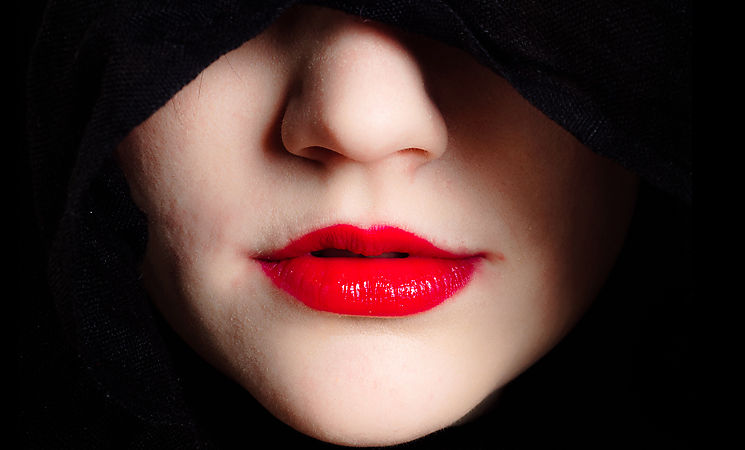
Entering the Sherman Studio to pulsating music, you take your seat and look down into the pit where the cast are already in motion, rocking, twitching, sighing and gliding around with glazed expressions; the play’s preoccupation with madness is already apparent.
With an uncluttered set of different sized boxes used as the bed and grave, the setting (by designer Bethany Seddon and scenic carpenter Matthew Thomas) has a simplistic but eerie quality. In the most medicalised version of Dracula that I have seen, Liz Lockheed’s contemporary adaptation is a testimony of shared madness. With two characters playing one part, the body and the mind are split in two, actualising the medical discourse of the late nineteenth century by visualising a split personality on stage.
There is real psychological drive to the performance that is carried by the characterisation of Renfield (Luther Phillips/Nicky Howard-Kemp) and the asylum backdrop. Ainsleigh Barber also plays her part in creating the imaginative madhouse as a foul-mouthed nurse with a look of lunacy herself. To see Renfield as a character is interesting as the text always mentions him within Dr Seward’s journal entries but he has no voice. In Lochhead’s adaptation, he sits at the heart of the action, looking down on his cast, quoting poor Tom (the madman in King Lear) as if locked in a bird-cage munching on flies. His verse is poetic despite its jittery and schizophrenic nature and is sensitively interpreted by Luther Phillips and Nicky Howard-Kemp who are both particularly convincing. Having a male and female counterpart for the representation of madness is a fantastic idea.
As the sighs from the psychiatric patients become the sound of the train shooting down the tracks, the underlying technological movement from Bram Stoker’s text emerges and the sensual movement becomes systematic.
Set against Dracula’s predatory movement and the sexualised female ruby lips of Alys Wilcox, a lot of the characters – Harker (Finbar Varrel), Mina (Ruth Long/ Kirsty Campbell) and Florrie (Alice Muzzioli/Inari Soinila), a new addition to cast as the maid – are noticeably domesticated and the women are dressed in dirty white attire; Florrie with a baby on the way, and Mina and Harker unable to let go of the fact that the other was seduced by the darkness of vampirism. Stoker wrote his novel only a few years after Jack the Ripper and the sense of fear and use of protruding shadows aligned with the domestic snippets bring this production into the real world. Or so it seems until the madhouse is revisited again.
Alys Wilcox plays a seductive Dracula, eloquent but smouldering. Saskia Pay and Meg Lewis’ dual characterisation of Lucy is full of flirtation and gracefulness until the dramatically engaging transformation into frenzy during the nightmarish sleepwalking sequence where both girls are at their best. The whole cast works well together and aside from an occasional static line, it is clear that a lot of preparation has gone into the performance and the Sherman Players produce a very ambitious and interesting production.
The end, like the novel is anticlimactic. I was waiting was Van Helsing to appear above over Dracula’s body in a photo like shot holding the knife to sever the head, (especially after the camera played a great deal of significance), but that is a personal preference. Overall, the Sherman Players pulled off a very admirable first performance and the show is well worth a watch!
Wickedly innovative and full of conviction, this was a great start for the Sherman Players.
Performances are running at the Sherman Theatre until Saturday 25th July, 7.30p.m nightly.
http://www.shermancymru.co.uk/performance/theatre/dracula/
Get The Chance has a firm but friendly comments policy.
